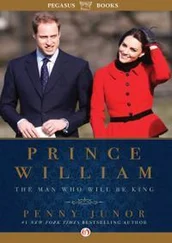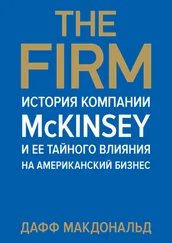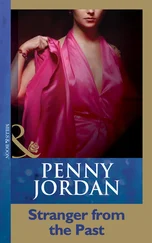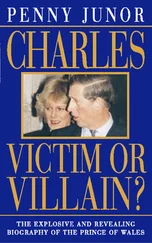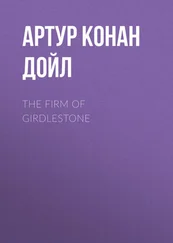There is also a section of the community that the monarchy needs to reach out to. People at the top of the tree are rewarded with gongs and garden parties and people at the bottom of the heap are catered for by the charities with which the Royal Family are involved. Their problems are well understood. But there is very little contact and therefore little understanding of the people in the middle. ‘What they have no feel for,’ says an equerry to the Prince of Wales, ‘is the middle-manager of a building company, who has a £100,000 mortgage on his house and has been told his job is redundant. Monarchy has a lot of support from the working class and the upper class. It’s the ones in the middle who feel it’s not relevant to them. That’s where the issue is. You go to a housing estate on a Wednesday afternoon in November and you know who you’re going to meet. Somehow you need to include those others.’
What monarchy needs, like any modern business or organization, is a regular health check; it needs to ask itself why it is there, what it is aiming to achieve, and whether it is being successful. According to Mark Goyder
a well-led company is one where there’s a very clear sense of purpose, of who and what you are and where you come from, clear values and a very clear understanding of all the relationships that are critical to your future success. The other idea we talk about is the licence to operate, the implicit permission that any business has – not granted by a regulator but by reputation, by trust, by the legitimacy in which you’re held. In the sense of clear purpose, I wonder if the question has ever been asked of the Queen, what are you here for? Or is that what it means to be the Establishment; that you’re so established you never have to ask that question? That might be the answer. In a world in which everyone else questions who they are and what they’re for, this is the one institution that doesn’t have to answer that question and maybe that is what defines them.
‘The Queen appeals to those things which are beyond controversy; the basic values, she enunciates them, she points to that realm where we are still united despite all the political shenanigans and argy-bargy. You may feel, sitting in London,’ says Richard Chartres, the Bishop of London, ‘that the appeal of these things ebbs, is ebbing, has ebbed.’
I am wondering whether the monarchy still has the capacity to overcome the differences of education and community disintegration. I think the death of the Queen Mother was an astonishing revelation of the world outside the chattering classes of the Westminster village, where there is huge cynicism about all of this. Mind you, there’s huge cynicism about everything. It isn’t that the monarchy is regarded as decrepit; it is that we have, astonishingly, an Establishment that seems to want to liberate us from any sense of constraint or universal value and fundamental meaning. That’s obviously an enormous challenge for an institution like the monarchy whose whole raison d’être is social cohesion pointing beyond the argy-bargy of politics to some of the deep laws, the abiding themes of all human life, love and loss, values that we all basically share.
‘The Queen didn’t choose to be Queen,’ he says.
She hasn’t competed for her place on the greasy pole. Anyone who knows anything about it realizes what a heavy sentence it is in some ways and the institution therefore speaks also about Call, Acceptance of Call, Doing your Duty, Service, and that is real. Also there’s no escape clause, it’s a contract. In all those ways it’s a very remarkable institution. However, England is changing so that we may not for ever be worthy of it. If there is no principled, philosophical support for monarchy then the whole thing depends much more on what, in a celebrity culture, is made of the individuals, how they are used. The Queen is a canvas on whom people project, as well as someone who stands for things. There is such confusion and shame about the British story that it hasn’t been taught and communicated for the last twenty, twenty-five years. We feel very sorry for individuals who have lost their story – their memory – they’ve lost part of their identity, they live an impaired life – but if the community has no sense of its story, if you exalt diversity as the only virtue then you find that you have a giddy, rootless population which can easily be swayed by gusts of indignation and emotion.
As Lord Salisbury says,
By its nature the monarchy is a long-term institution and perhaps the greatest thing in its favour is that it endures while fashion doesn’t, politicians come and go and editors come and go. So the fact that it is always there, like the papacy, is a huge strength. It occupies a position no one else does and by occupying it they prevent anyone else from doing so. It’s very difficult, not impossible, to have a military coup when the officers are loyal not to the Prime Minister and government but to the monarch. It’s very difficult, although much easier now with the European Court of Human Rights legislation and supremacy of EU law, but still difficult so long as judges owe their oath of fealty to the monarch rather than the government, for the law to lose its independence entirely – a keystone of the way our free society operates. It’s also very important that people should recognize the monarchy in this context that the Queen is part of Parliament. There are not two parts of Parliament; there are three: Monarch, Lords and Commons, and ultimately one of the great restraints of being in government is the feeling that you don’t want to drag the monarchy down into the pit of parliamentary and political dispute although that is becoming more difficult with the question of the monarchy’s existence being in play. So long as senior politicians of all parties owe a genuine allegiance to the Crown, always before you do anything, you have to ask yourself, does this breach the club rules? That is a great guarantee; but as soon as that consensus breaks down you’re in trouble.
Tristan Garel-Jones again concurs.
It’s true that power corrupts, absolute power corrupts absolutely; when you’re a minister, even if a junior minister of state, it’s quite easy to end up thinking you’re quite important, because you have lots of people laughing at your jokes and telling you how clever you are and writing clever speeches for you, and you could end up thinking you’re quite somebody; and the beauty in Britain for me is there are certain positions that no politician can hold, ever. No politician can ever be Head of State. The Armed Forces in Britain do not swear an oath of loyalty either to Parliament or the Conservative or Labour Party or anyone else. Every officer in Britain is commissioned by the Queen. You can argue it’s all mirrors, but it removes all positions, albeit symbolic, from the hands of politicians, which is not a bad thing at all. Even in my case, if ever when I was a whip it passed through my mind that I was quite important, I had to sit down at the end of every day and write an eight-hundred-word letter to the Queen. Another thing that went with this position, you were a kind of messenger, you carry the messages from the Queen to Parliament, bits of paper she had to sign, and there were certain moments when I had to put on a morning coat, get into a motor car, go round to the Head of State’s office, stand to attention, present the Head of State with certain papers, and go back. It reminds politicians that there is something up there that is the Nation – the national interest – that is going to go on and on and on long after they’re dead and buried.
The beauty of all this is because I held these positions [Vice Chamberlain, Comptroller of the Household and Treasurer – all of which go with the whip’s job] for quite a long time, all three, one after the other, I had quite a lot of contact with Buckingham Palace and with the Head of State. And audiences – you go in with your bits of paper, and whilst I can honestly say the audiences were perfectly courteous and even amusing sometimes, never once by hint or gesture did the Head of State imply to me that I was some kind of friend, that she was rather pleased I was a Conservative and not a Labour member, ever. I regard this as wonderful. I used to go in there regularly, write her letters regularly, and at the end of the day I have no doubt whatsoever, if instead of me standing in front of her it had been my opposite number, the Labour member for Jarrow, it wouldn’t have made a scrap of difference and I think that’s something the country needs to know. Certainly a lot of Conservatives think she secretly likes us. That’s bollocks. I am a person representing a function which is part of her duty and she does it with courtesy and humour and wit but never, ever, ever on any single occasion did I feel that I was in some way special or my party was in some way special.
Читать дальше
Конец ознакомительного отрывка
Купить книгу

